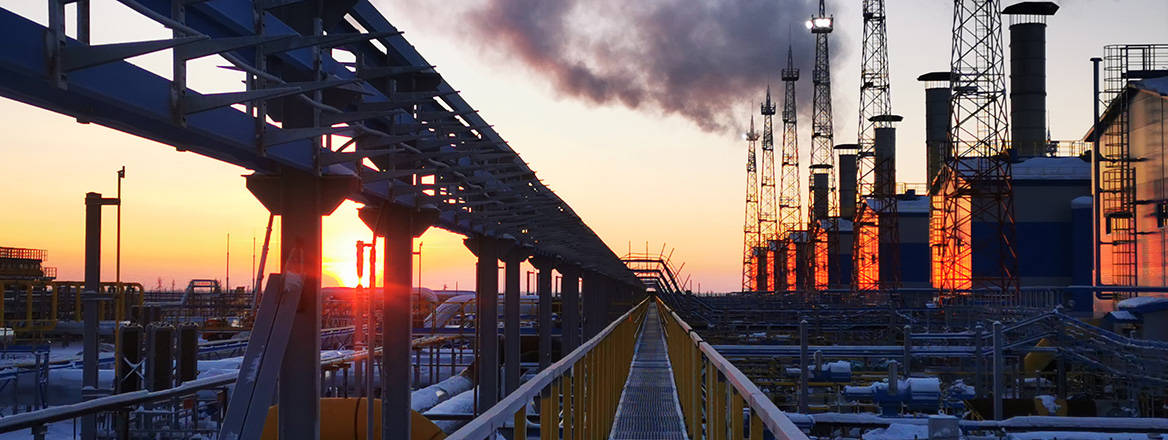Green Insecurity: An Attack on Ukraine and Climate Change Cooperation
On top of the toll on civilian life and the environment in the conflict zone, Russia’s invasion of Ukraine presents substantial geopolitical challenges for global cooperation on climate change. This conflict is yet another stark reminder of why international pledges to move away from non-renewable energy sources must become a reality.
Since Russia’s invasion of Ukraine on 24 February 2022, energy security has been a central feature of public discourse. As Russia is one of the world’s largest suppliers of oil and gas, the energy market has become a crucial factor as the humanitarian and environmental crisis unfolds. With many countries dependent on Russia for energy supplies, the international community is now in a position where its ability to respond forcefully to the invasion is undeniably restrained.
During the first few days of the conflict and after eight years of work, the UN Intergovernmental Panel on Climate Change (IPCC) released the second part of a landmark report, detailing the catastrophic impacts climate change is already having all over the world. Sadly, the report flew largely under the radar, overshadowed by the Russian invasion. Ukraine’s IPCC scientists were even forced to withdraw from determining the final wording of the report because they needed to shelter from Russian missiles.
With our ability to achieve net zero already uncertain and in a world where extreme weather is already a reality, Putin’s invasion places renewed urgency on the global adoption of renewable energy.
A Fossil Fuel-Led Dictator
Europe reportedly paid Russia $24 billion for oil and gas in March alone. This has sparked serious concerns that – despite imposing financial sanctions designed to stop Putin’s advance – Western leaders are in fact indirectly aiding Putin’s war. Oil and gas provide approximately 39% of Russia’s federal budget revenue, and in 2019 these fossil fuels accounted for 60% of Russia's exports. Fossil fuel revenue is, therefore, at the core of the Russian economy, and Putin’s regime has perhaps unsurprisingly taken notable steps to protect its interests and maintain the status quo.
Contemporary Russian strategies primarily recognise climate change as a threat to economic development. Although Russia is a member of the main multilateral environmental agreements, it has been criticised for using many as platforms to enhance its business interests. In December 2021, Russia voted against a UN Security Council resolution recognising climate change as a fundamental threat to international peace and security. Russian ambassador Vassily Nebenzia complained that the resolution would divert attention from ‘genuine’ sources of conflict and give the council cause to interfere in virtually any country on the planet. Despite this, 113 of the UN’s 193 member countries supported the resolution. Russia’s veto deepened divisions that had already emerged in November during the COP26 climate summit in Glasgow. Russia, along with China, was notably absent from the COP26 proceedings, while other countries pledged to phase out fossil fuels in the coming years.
Europe’s ability to respond to the conflict has been impeded by its dependence on Russia for its energy, as the EU relies on Russia for nearly 40% of its natural gas supplies
In the lead-up to the conflict, Russia even reminded Europe of its stranglehold over energy supplies. In the summer of 2021, Russia began reducing the amount of gas it sent to Europe, forcing a supply crisis and causing wholesale gas prices to drastically increase. This move tested Europe’s vulnerability and confirmed Europe’s continued dependence on Russia for its energy.
Climate Change Chaos
Europe’s ability to respond to the conflict has been impeded by this dependence, as the EU relies on Russia for nearly 40% of its natural gas supplies. When Russia invaded Ukraine, Europe was shackled to the aggressor.
The invasion immediately disrupted European and global commitments to combat climate change. Disturbingly, in the immediate panic, some European countries considered returning to relying on coal. Italy imports 90% of the gas it uses, and immediately threatened to reopen decommissioned coal power plants, despite a pre-conflict goal of phasing out its coal usage by 2025. A renewed reliance on coal would be a huge step backwards, as coal is the single biggest contributor to climate change and is responsible for over 40% of annual global carbon emissions. Even in the short term, a panicked return to coal use would result in a catastrophic increase in emissions, moving us ever further away from the goal of net zero.
A scramble for liquefied natural gas (LNG) also ensued. LNG forms when natural gas is cooled to −162°C, allowing it to be stored and transported by sea. However, competition for the resource is fierce. Ships destined for Asia were diverted enroute, after companies realised they could achieve a higher price for the resource in Europe. While LNG would help lessen Europe’s reliance on Russia for its energy supplies, it merely shifts Europe’s dependency to other countries. There are also serious concerns that Asian countries which previously relied on LNG will increasingly use coal to account for the shortfall. To add to these concerns, controversial fracked shale gas is also making a reappearance. Since the crisis, the US has turned to fracked shale gas and is exporting supplies to Europe, while the UK is also considering a return to fracking to improve its energy security.
Western countries’ reliance on fossil fuels continues to drive them into the arms of illiberal states as they try to find alternatives to Russia
Western countries have also been trying to strengthen relations with other oil-producing countries such as Saudi Arabia, Venezuela and Iran. Western countries’ reliance on fossil fuels continues to drive them into the arms of illiberal states as they try to find alternatives to Russia.
Thankfully, not all responses have been geared towards fossil fuels. The European Commission plans to replace a large portion of imports from Russia by the end of the year, 33% of which would come from new renewable-energy generation and conservation measures. It has also pledged to speed up the rollout of heat pumps – heating systems that use only a quarter of the energy of traditional gas boilers. In Germany – where the crisis is acute given its recent exit from nuclear power – the government is proposing to increase the share of energy generated from renewable sources from 40% to 100% by 2035, five years earlier than it had originally planned.
Better Late Than Never
This is not the first time the energy market has become a crucial factor in a conflict. During the 1973 Arab-Israeli War, an embargo prohibiting the sale of Arab oil to the US, the Netherlands, Portugal and South Africa was used to gain leverage in the post-war peace negotiations. The fact that nearly 50 years later, energy supplies are still being used as a tool to constrain the West’s response to conflict demonstrates the urgent need for change. Hopefully, the Russian invasion of Ukraine will be a catalyst for countries to move away from fossil fuels and adopt cleaner, more secure energy options – a move that will the benefit both the climate and international security.
The views expressed in this Commentary are the author’s, and do not represent those of RUSI or any other institution.
Have an idea for a Commentary you’d like to write for us? Send a short pitch to commentaries@rusi.org and we’ll get back to you if it fits into our research interests. Full guidelines for contributors can be found here.
WRITTEN BY
Genevieve Kotarska
RUSI Associate Fellow, OCP | SHOC Network Member - Researcher
Lauren Young
Former Research Fellow
- Jim McLeanMedia Relations Manager+44 (0)7917 373 069JimMc@rusi.org



